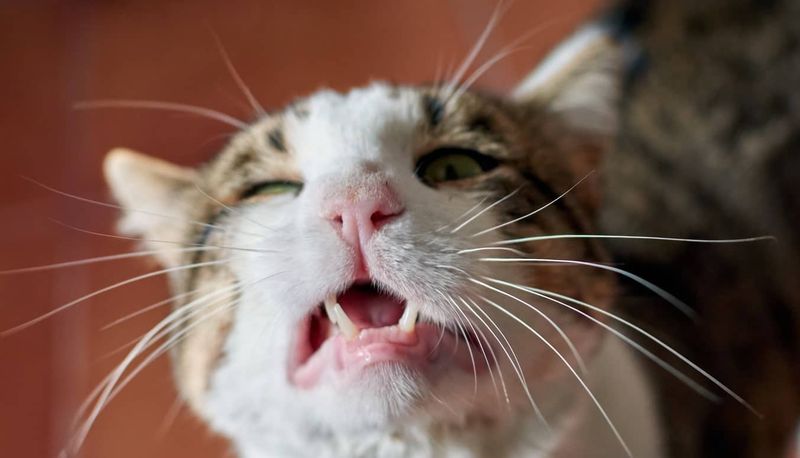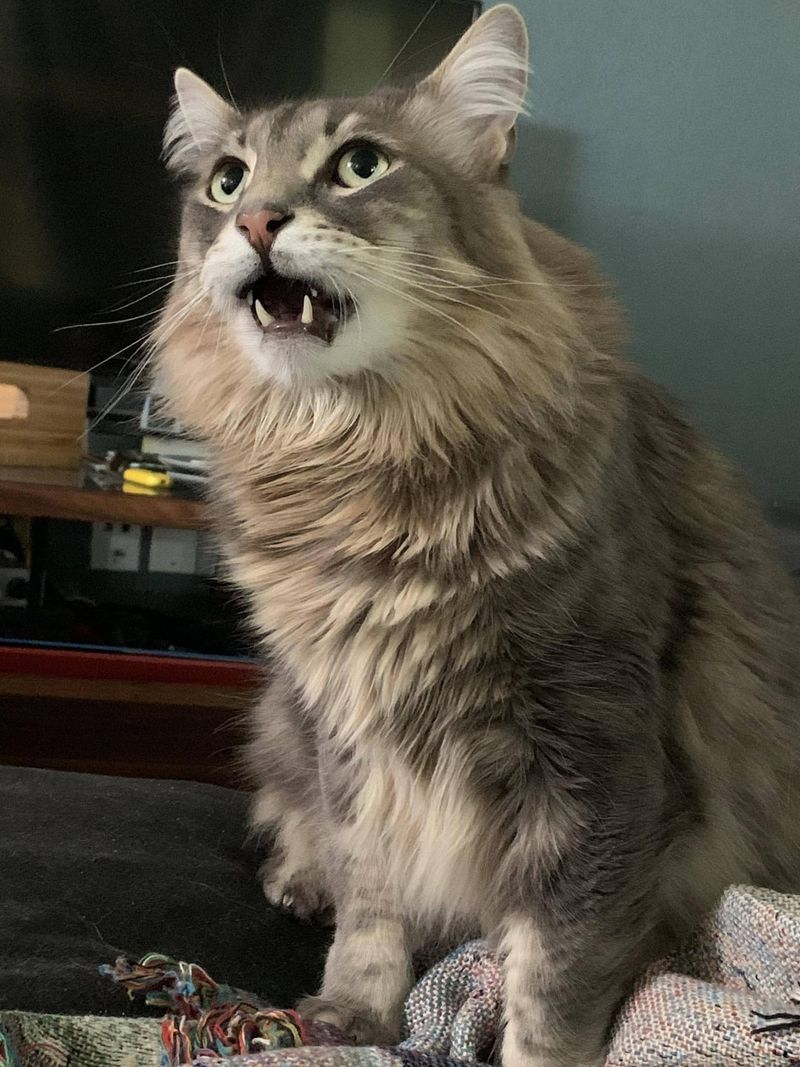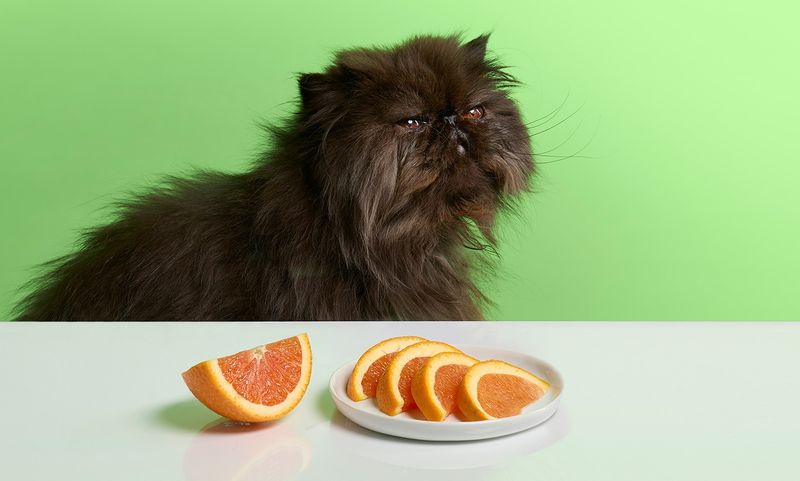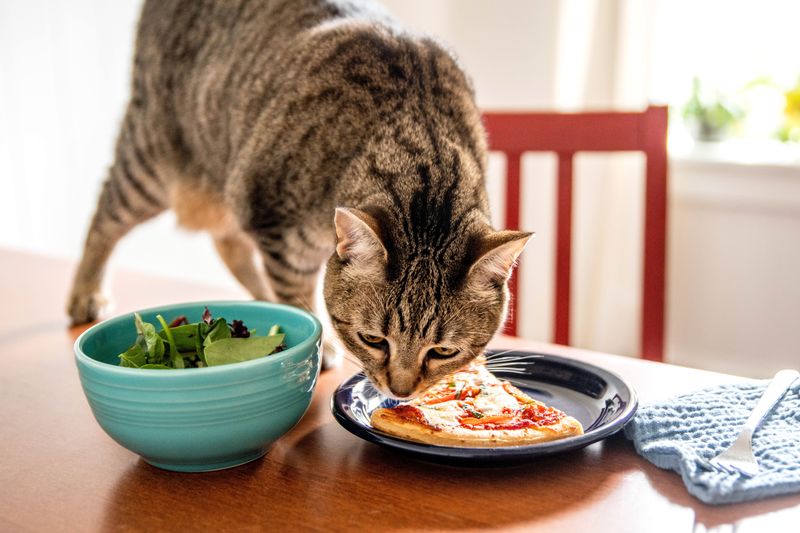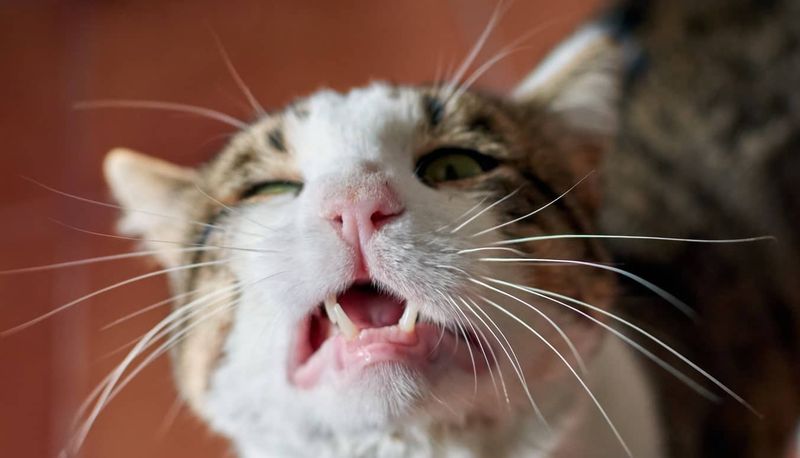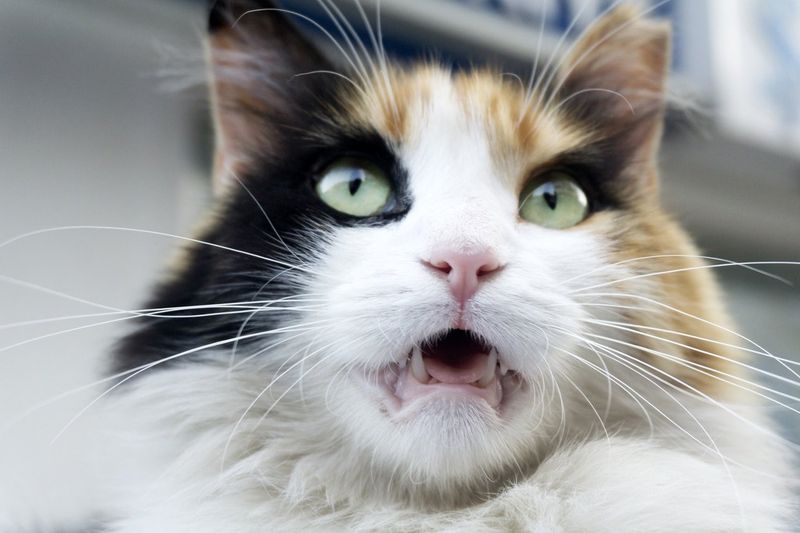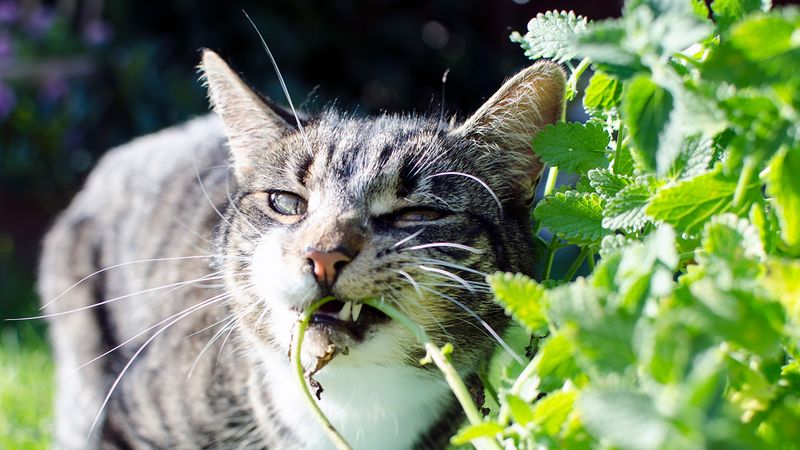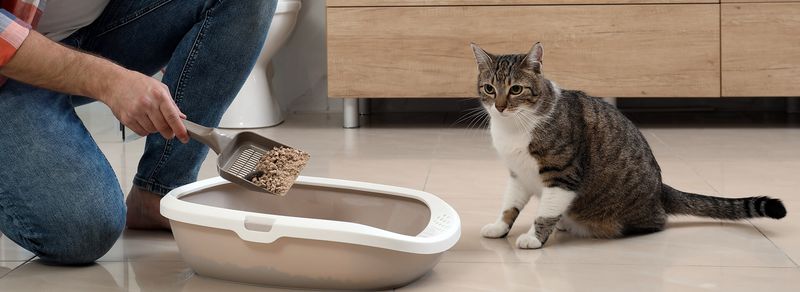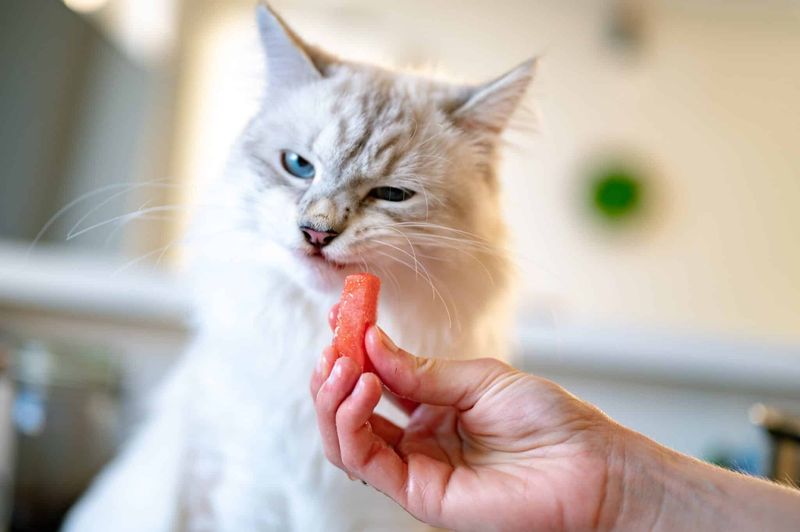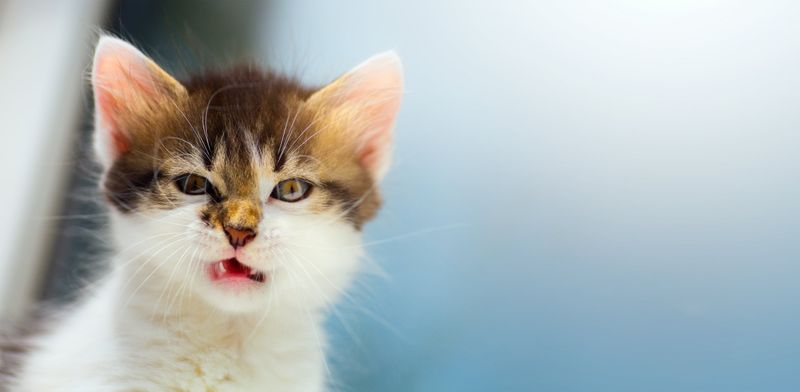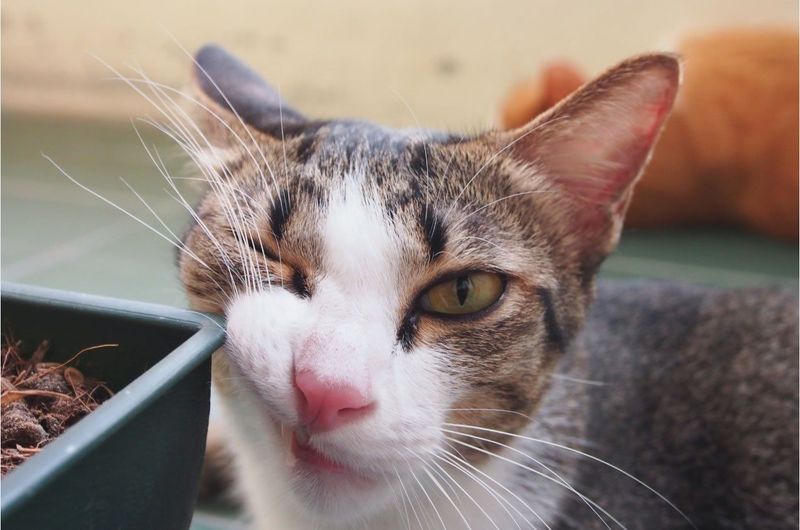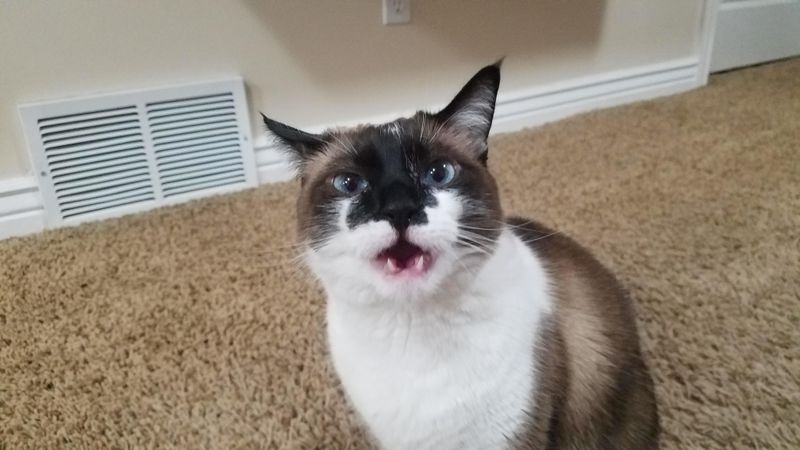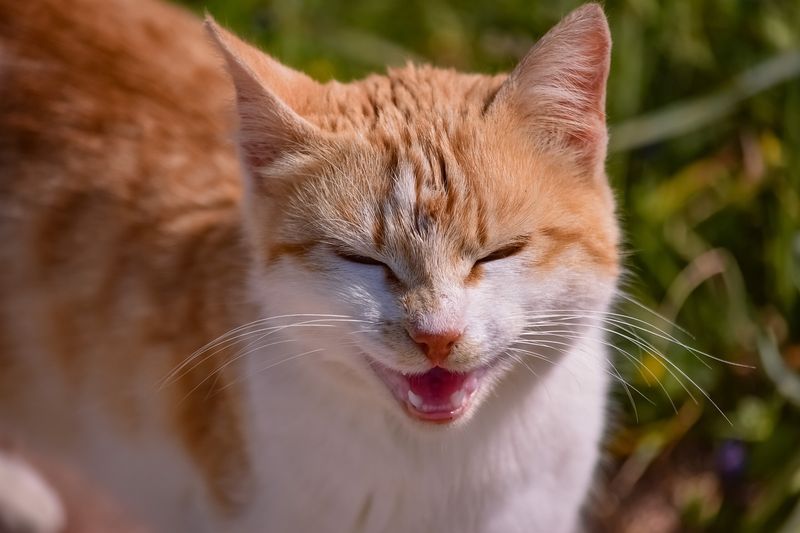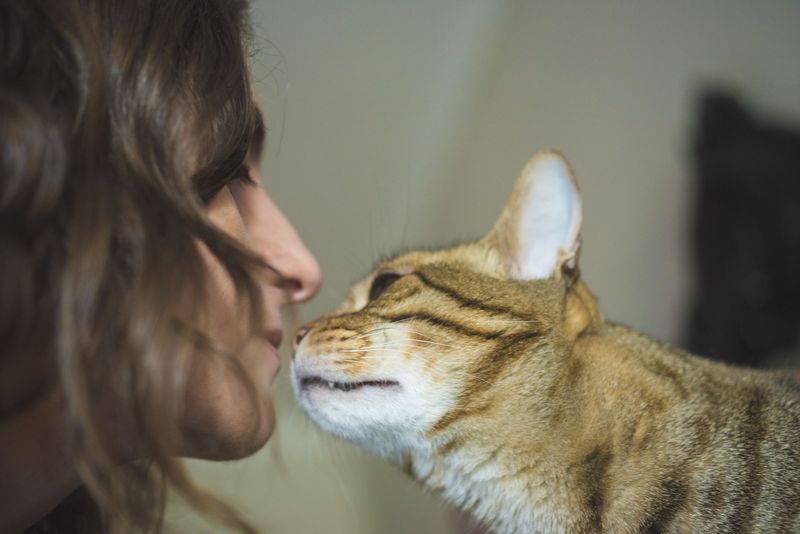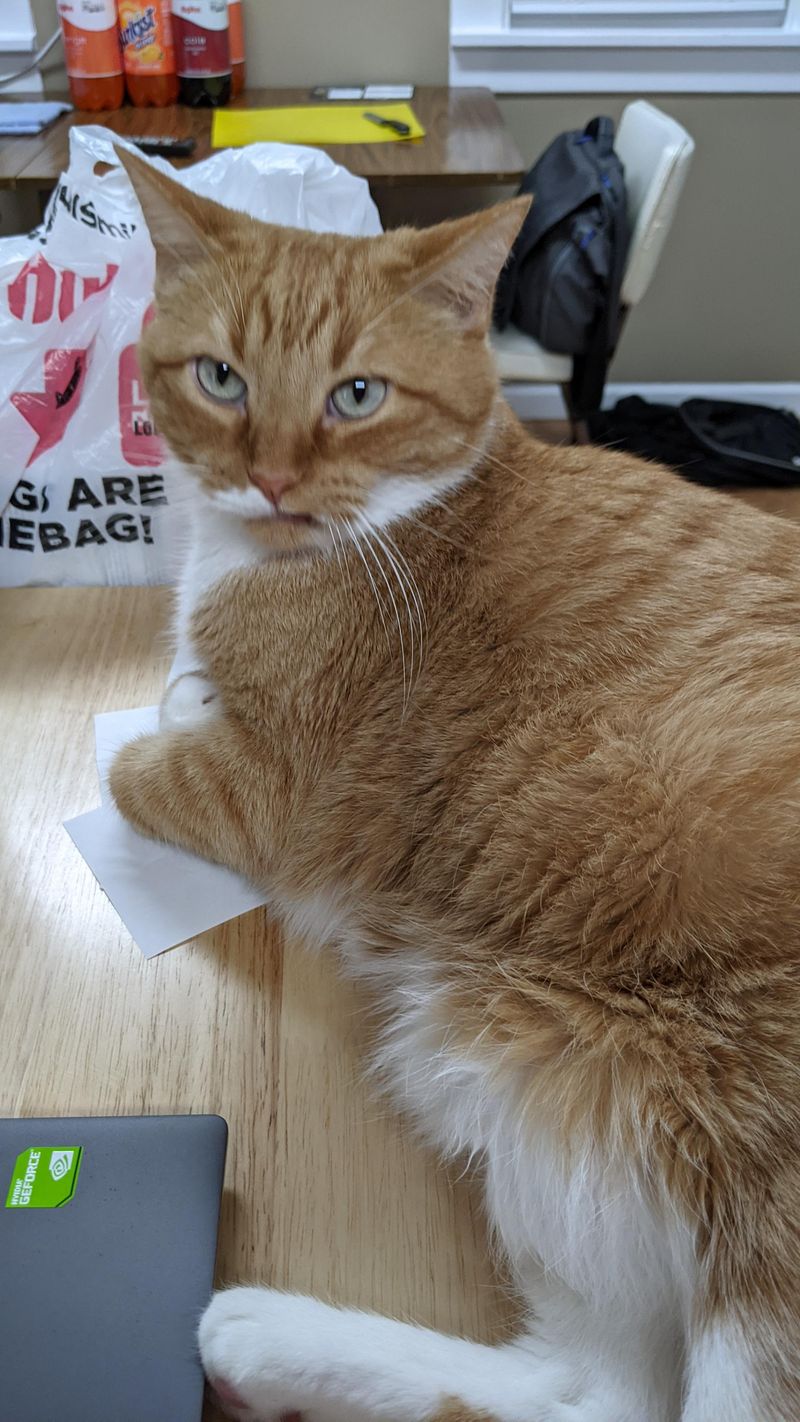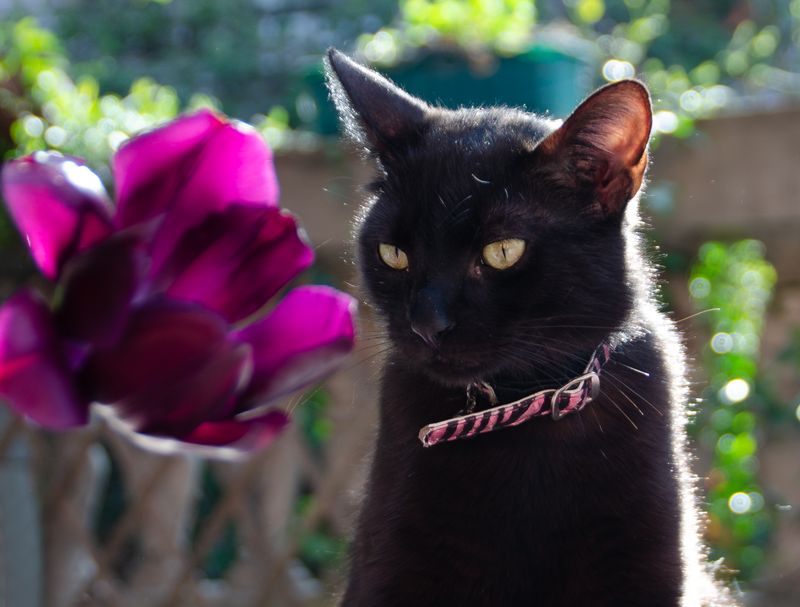📖 Table of Content:
- 1. The Flehmen Response
- 2. Strong or Pungent Odors
- 3. Spoiled or Rotten Food
- 4. Scent of Another Animal
- 5. Chemical or Artificial Scents
- 6. Catnip Overload
- 7. Dirty Litter Box Smell
- 8. Certain Human Foods
- 9. New or Unfamiliar Scents
- 10. Scent Marking from Other Cats
- 11. Essential Oils
- 12. Plastic or Rubber Smells
- 13. Your Smell After Being Around Other Animals
- 14. Pheromones or Hormonal Changes
- 15. Toxic or Harmful Substances
Cats often display a look of disgust after sniffing something, which can be both amusing and puzzling to their owners. This reaction is due to their highly developed sense of smell, which is far more sensitive than that of humans. Certain scents can be overwhelming or unpleasant for them, causing an instinctive response that may appear as a grimace, head shake, or sudden retreat.
Did you know that this reaction is sometimes due to the Flehmen response? This is a special behavior where cats curl back their lips and slightly open their mouths to analyze scents more deeply. They do this using the vomeronasal organ, also known as Jacobson’s organ, which helps them detect pheromones and other chemical signals. While it may look like disgust, it’s actually a way for them to process and understand different smells in their environment.
Recognizing this behavior can help you better understand your cat’s sensory world and create a more comfortable space for them. Strong-smelling items such as citrus, vinegar, or cleaning products can be off-putting, so being mindful of their reactions can improve their well-being. By paying attention to what triggers this response, you can make adjustments to keep your feline friend happy and stress-free.
1. The Flehmen Response
Occasionally, your cat seems disgusted, but it’s actually exhibiting the Flehmen response. This unique behavior involves curling back their lips and opening their mouth slightly. The purpose is to draw scents into the Jacobson’s organ, located on the roof of the mouth. This organ helps cats analyze scents more deeply and is particularly active when they encounter intriguing smells. Cats use this ability to gather more information about their environment, mates, or other animals. Despite the funny look, it’s a natural and important activity for them. Watch your cat closely next time it displays this amusing behavior.
2. Strong or Pungent Odors
Your feline friend has an incredibly sensitive nose. Strong or pungent odors like citrus, vinegar, or cleaning products can easily overwhelm them. When confronted with such strong smells, a cat might wrinkle its nose or step back, giving the impression of disgust. These reactions are just a way for your cat to cope with excessive sensory input. Consider using cat-friendly cleaning products or keeping strong scents away from areas your cat frequents. By doing so, you can make your home more pleasant for your cat and avoid those dramatic reactions. It’s all about creating a comfortable environment.
3. Spoiled or Rotten Food
Food safety is important to cats as well! If they come across spoiled or rotten food, their instinctual response is to avoid it. This behavior can help them steer clear of potential health hazards. When your cat sniffs food and looks disgusted, it’s likely due to its natural survival instincts kicking in. Cats are finicky eaters and rely heavily on their sense of smell to determine the safety of what they consume. Regularly check and clean your cat’s feeding area to ensure it remains free of spoiled food. Keeping their dining area fresh is key to their health.
4. Scent of Another Animal
When your cat encounters the scent of another animal, its reaction can range from curiosity to disgust. Smelling another cat, dog, or any unfamiliar creature can trigger a defensive or confused response. Your cat may hiss, back away, or make a funny face. This is their way of processing and reacting to the unfamiliar scent. Cats are territorial by nature, and unfamiliar smells can pose a perceived threat. Allow your cat time to adjust to new pets or objects in their environment. Gradual introductions can help ease your cat’s anxiety and maintain harmony at home.
5. Chemical or Artificial Scents
Artificial scents like perfumes, air fresheners, and synthetic chemicals often irritate a cat’s sensitive nose. The presence of these odors can lead to sneezing, nose wrinkling, or a generally displeased demeanor. Cats have a heightened sense of smell compared to humans, making them more susceptible to overpowering fragrances. Limiting the use of such products around your cat can prevent unnecessary discomfort. Opt for unscented or cat-friendly alternatives to keep your home smelling fresh without overwhelming your pet. Keeping your living space free of harsh chemical odors contributes to your cat’s overall well-being.
6. Catnip Overload
While many cats love catnip, too much exposure can lead to overstimulation. Cats might seem euphoric, but they can also display an amusingly disgusted expression. The euphoric effects of catnip are temporary, and each cat reacts differently. Some cats become hyperactive, while others appear dazed or even slightly annoyed. Moderation is key when it comes to offering catnip. Observe your cat’s reaction and limit catnip to short sessions to prevent overstimulation. Providing a balanced amount allows your cat to enjoy the benefits without experiencing sensory overload. It’s all about finding the right balance for your cat’s enjoyment.
7. Dirty Litter Box Smell
Cats are notoriously clean creatures, and a dirty litter box can be quite off-putting for them. The strong ammonia smell from an unclean litter box can trigger a look of disgust. It’s essential to maintain a regular cleaning schedule to keep the box fresh. Cats can refuse to use a litter box if it isn’t clean, leading to behavioral issues. By scooping daily and refreshing the litter regularly, you can provide a more pleasant experience for your cat. A clean litter box is not only crucial for your cat’s comfort but also for its health and happiness.
8. Certain Human Foods
Certain human foods are just not appealing to cats. Foods like onions, garlic, or spicy dishes emit odors that are unpleasant to their sensitive noses. Your cat’s reaction of disgust serves as a warning to stay away from these potentially harmful foods. Cats have different dietary needs and digestive systems, so it’s important to keep human food out of their reach. Offering cat-safe treats instead can ensure they get the nutrition they need without encountering unpleasant smells. Keeping human food separate ensures your cat remains happy and healthy, free from the temptation of unsafe treats.
9. New or Unfamiliar Scents
They rely heavily on scent for familiarity. New or unfamiliar scents can cause a dramatic reaction as they assess the potential threat. When your cat encounters a new piece of furniture or a stranger, its initial response might include a look of disgust. This behavior is a mix of curiosity and caution. To ease your cat into new situations, give them time to adjust and explore at their own pace. Provide familiar scents like their favorite blanket or toy to make the transition smoother. Understanding this behavior helps in creating a comforting environment for your cat.
10. Scent Marking from Other Cats
Scent marking is a common behavior among cats, especially when they encounter the scent of other cats. If another cat has marked an area, your cat may react strongly to the territorial message left behind. This can include making a face that seems disgusted. Scent marking helps cats establish territory and communicate with other felines. When your cat encounters these scents, it might feel the need to assert its own presence. Providing your cat with its own space and allowing it to mark safely can reduce territorial tensions. Recognizing these signs can improve coexistence among multiple cats.
11. Essential Oils
Many essential oils, such as peppermint or eucalyptus, have strong smells that cats dislike. Moreover, some essential oils are toxic to cats and can pose health risks. Cats might exhibit a look of disgust when they come into contact with these overpowering scents. It’s crucial to keep essential oils out of reach and avoid using them in areas where your cat spends time. Instead, consider cat-safe alternatives to keep your home fresh without compromising your cat’s safety. Being mindful of the products you use helps ensure a safe and pleasant environment for your pet.
12. Plastic or Rubber Smells
Your cat might react to the synthetic odors of plastic or rubber items with a mix of curiosity and disgust. Some cats are particularly sensitive to these artificial smells, especially when they’re new. The reaction might include sniffing followed by a scrunched-up face. To reduce these reactions, allow new items to air out before introducing them to your cat’s environment. This can help dissipate strong odors that may be overwhelming. Providing toys made from natural materials can also be a beneficial alternative. Understanding your cat’s preferences can enhance its playtime experience and overall comfort.
13. Your Smell After Being Around Other Animals
When you’ve been around other animals, your cat might notice the unfamiliar scent on you. This can trigger a puzzled or even disgusted reaction as your cat tries to make sense of the new smell. Cats are territorial and highly aware of changes in their environment, including scents on their humans. To ease the transition, allow your cat to approach and sniff you in its own time. Offering a soothing voice and gentle petting can reassure them. Being mindful of your cat’s sensitivity to scent can help maintain a harmonious relationship between you and your feline friend.
14. Pheromones or Hormonal Changes
Pheromones play a significant role in feline communication. When a cat encounters pheromones, particularly from other cats in heat, it can trigger a strong reaction. Your cat might appear agitated or display a face of disgust. This response is part of their instinctual behavior to understand and react to potential mates or rivals. Providing your cat with its own space during such encounters can help minimize stress. If you notice frequent agitation, consider consulting a vet for advice. Understanding pheromone-related behaviors can improve your cat’s well-being and your awareness of its needs.
15. Toxic or Harmful Substances
Cats instinctively avoid toxic or harmful substances, such as bleach or alcohol. The strong chemical smells can trigger an instant look of disgust, serving as a survival mechanism. Cats rely on their keen sense of smell to protect themselves from ingesting harmful chemicals. To keep your cat safe, store toxic substances securely out of their reach. Use pet-safe cleaning products whenever possible to maintain a hazard-free environment. Being proactive in your approach to household safety ensures that your cat remains healthy and comfortable. Awareness and preparedness are key in safeguarding your pet’s well-being.
